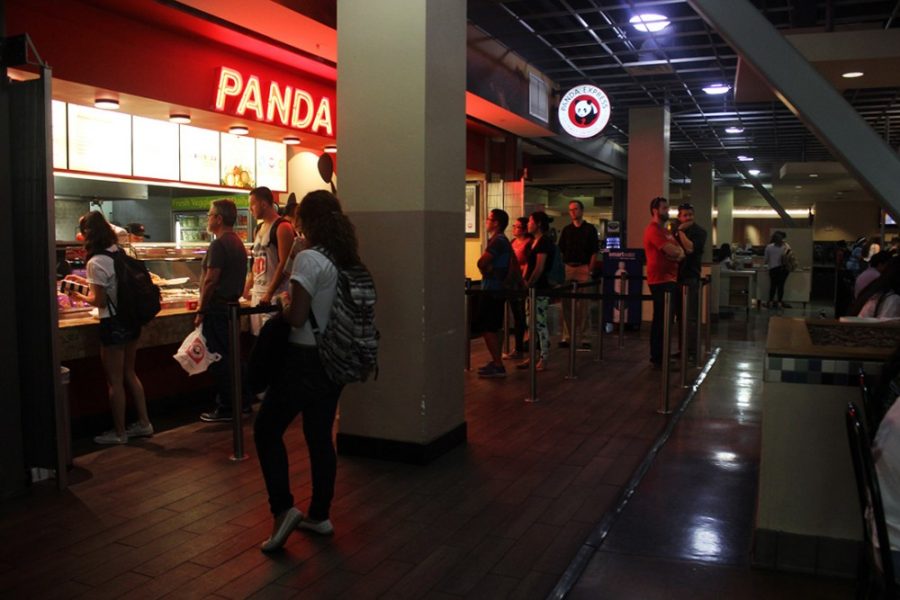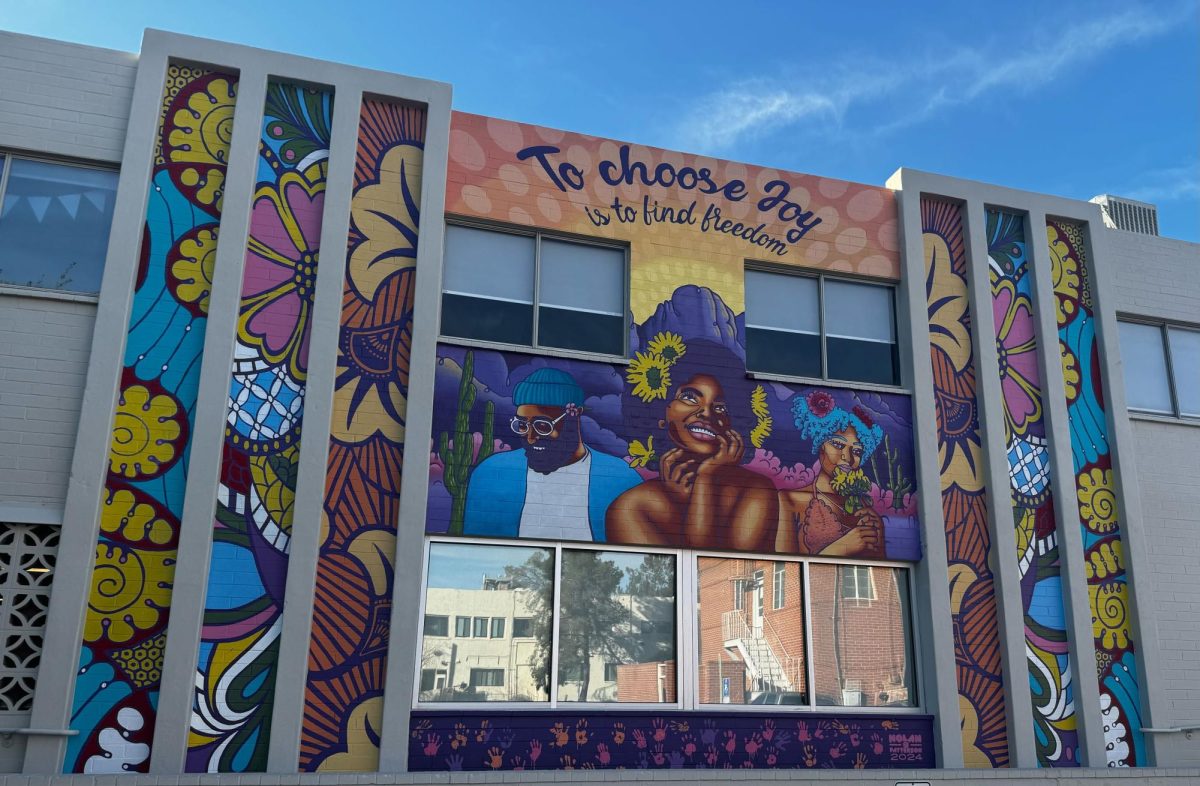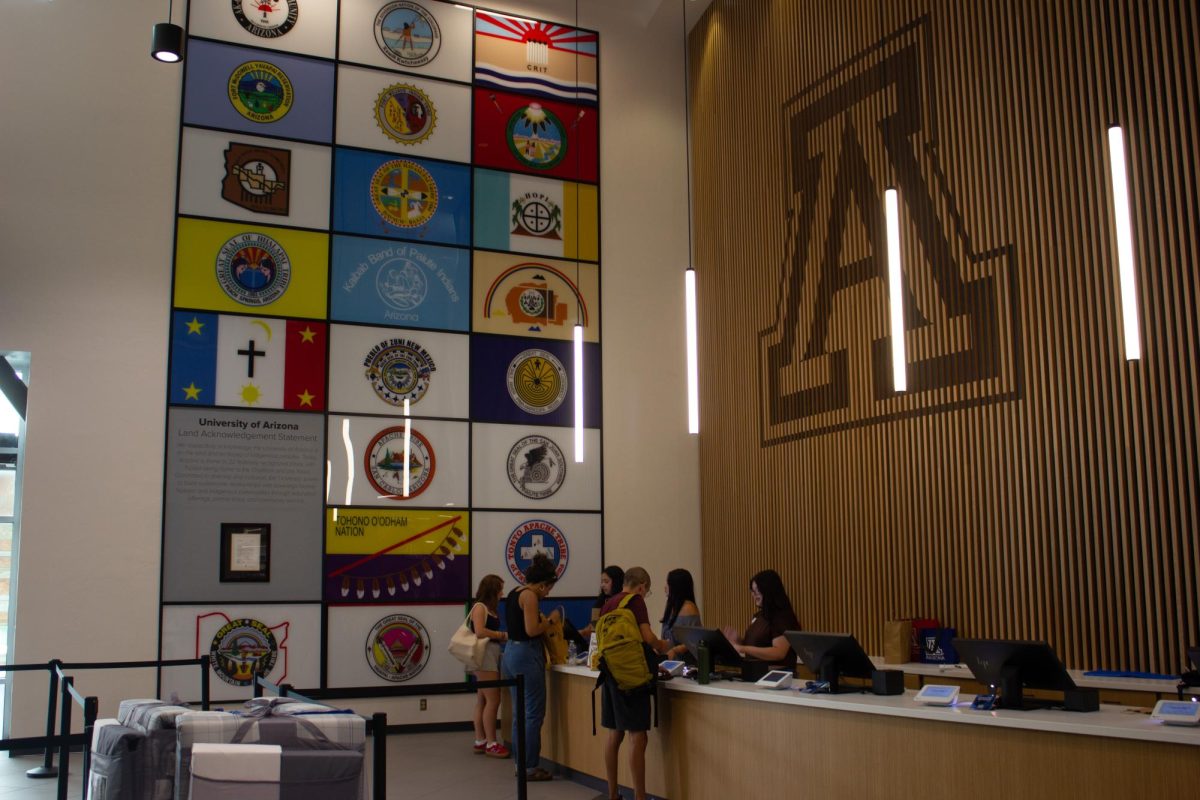UA’s culinary services seeks to capture student interest by introducing savory masterpieces with new restaurants expected to be unveiled in the fall.
The Arizona Student Unions confirmed a number of brand-new dining options, such as Slot Canyon Café and a mobile kitchen called RoadRunner Mobile Kitchen.
“I think it’s evolution,” said Chef Michael Omo, UA’s senior executive chief. “You always have to stay current and fresh.”
Meal plans, used by 92 percent of the freshman class, are a popular payment method for food and beverages on campus. Wildcat and Commuter plans save students the 6.1 percent state tax, and Wildcat Plans, designed for those living on campus, will save students an additional 5 percent off each purchase.
When choosing a meal plan, students should be aware of the several selections available depending on their circumstances.
The Wildcat Gold Meal Plan costs $3,500 a year and is based on average costs of three meals a day. The Wildcat Silver Meal Plan is priced at $3,000 a year to cover two meals a day, and the Wildcat Copper Meal Plan is priced at $2,500 a year to cover one meal a day. However, the calculated number of meals per day for each plan do not limit students to their plans’ projections.
“Wildcat Meal Plans are declining balance accounts, meaning the student isn’t tied to eating a predetermined number of meals a day,” said Sara Rohde, the assistant director of Arizona Student Unions. “You use it up as you eat it up.”
Meal plans, which can be paid for in advance via check, card or bursar’s account, are accessed through students’ CatCards.
Lauren Gallegos, a public healthjunior, had the equivalent of a Wildcat Copper Meal Plan during her freshman year.
“It was convenient to use my CatCard instead of my debit card, because it was usually out already and attached to my keys,” she said.
Commuter Plans, which are typically for students who live off campus or those going greek, begin with a minimum deposit of $250 and can be added to at any time.
According to Rohde there are 41 places on campus that accept meal plans as payment, including restaurants in the Student Union Memorial Center and Park Student Union, coffee carts and hot dog stands, convenience stores and 350 vending machines.
While popular franchises such as Chick-fil-A and Panda Express will still be available in the SUMC, students can anticipate a varied selection of restaurants to appear across campus.
Among the new restaurants to be revealed is a concept called The DEN by Denny’s, located in the newly remolded Park Student Union Food Court, which will feature their Grand Slam breakfasts and burgers, Rohde noted.
Also new to the UA will be the RoadRunner Mobile Kitchen: the first mobile kitchen on campus. The Roadrunner’s whereabouts can be tracked down via Facebook, Twitter and Instagram.
The restaurants’ concepts differ, but most seem to focus around one central theme: to provide students with healthier selections.
“This year, we are offering a variety of new options,” said Christine Carlson, the Student Unions’ registered dietitian. “We are continuing to work to ensure that students can get nutrient-dense options that taste great while they are on campus.”
Other popular Student Unions restaurants will receive menu changes, including Pangea and The Cellar. The all-you-care-to-eat restaurant, Pangea, will feature a charcuterie, or a cold meats selection, a hot line, and mezze, or appetizers, among other stations, Chef Omo noted.
With these changes to be implemented soon, students can have confidence their opinions are being heard.
“We get a lot of feedback from the students themselves,” Chef Omo said. “Then we try hard to incorporate what they are looking for.”









